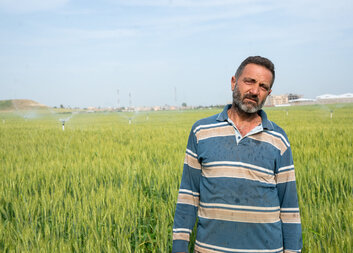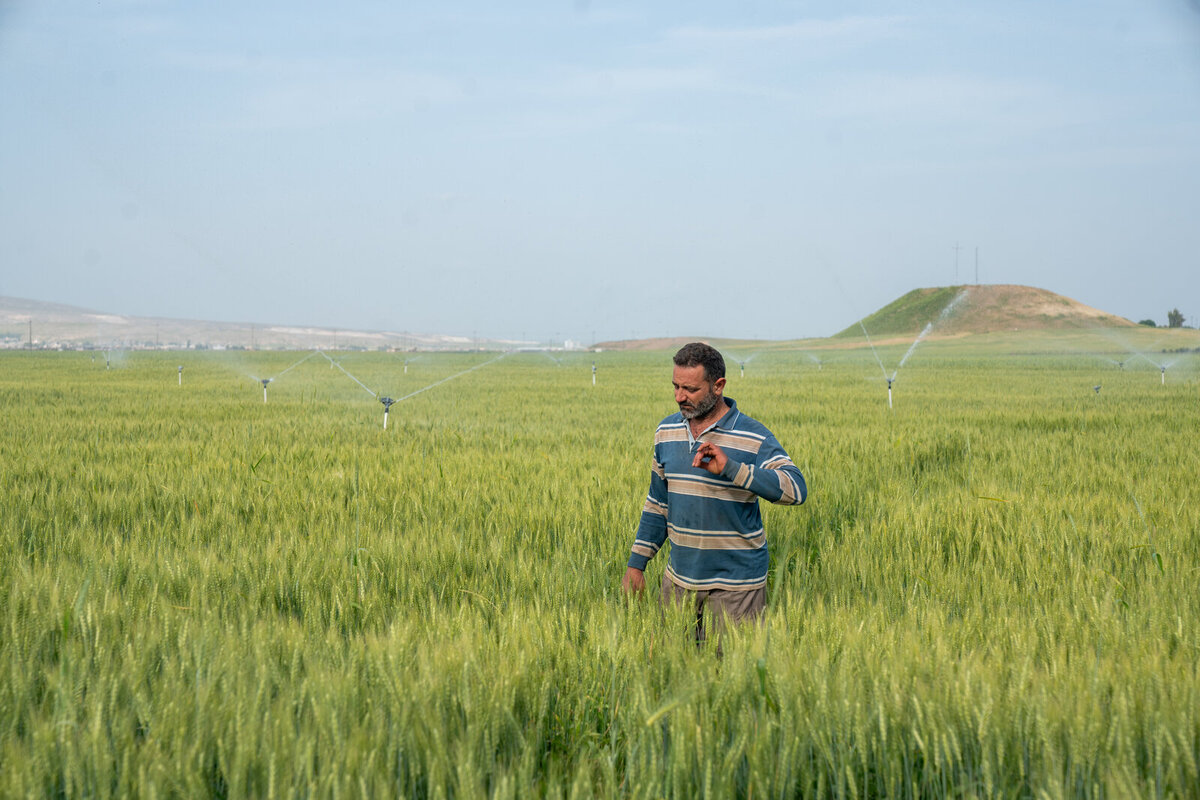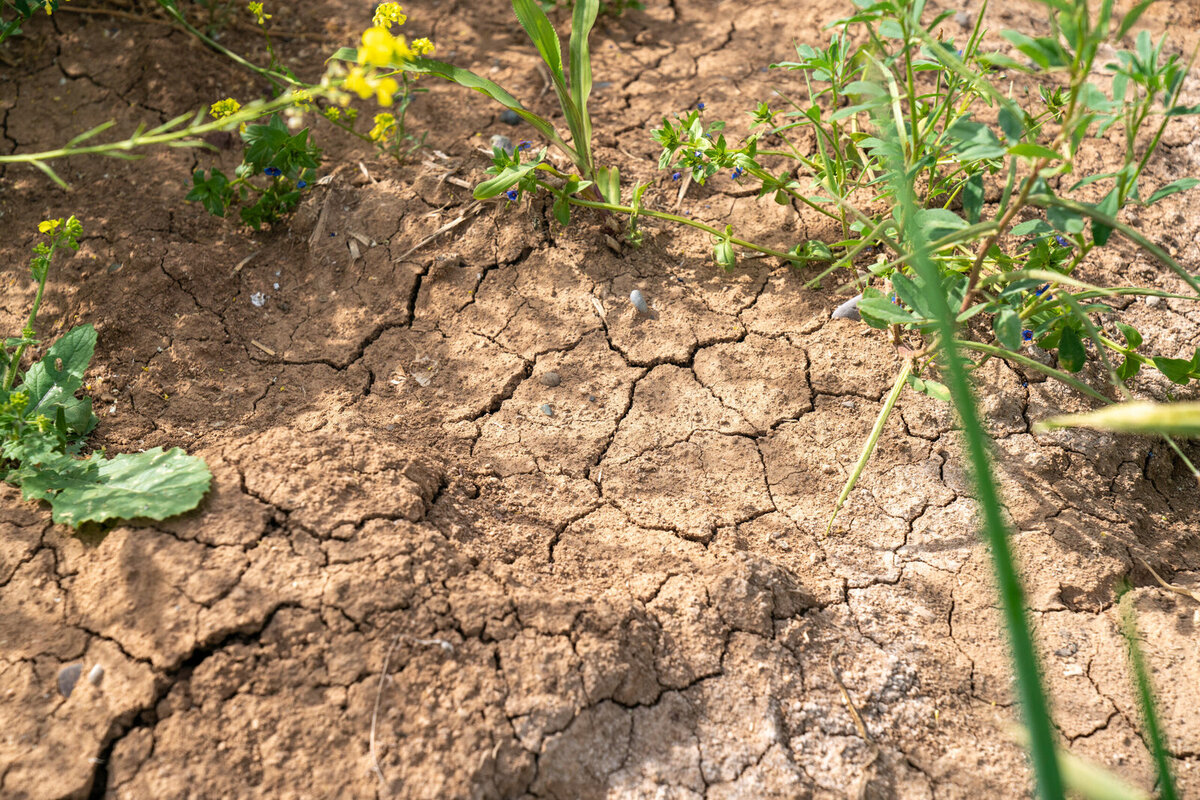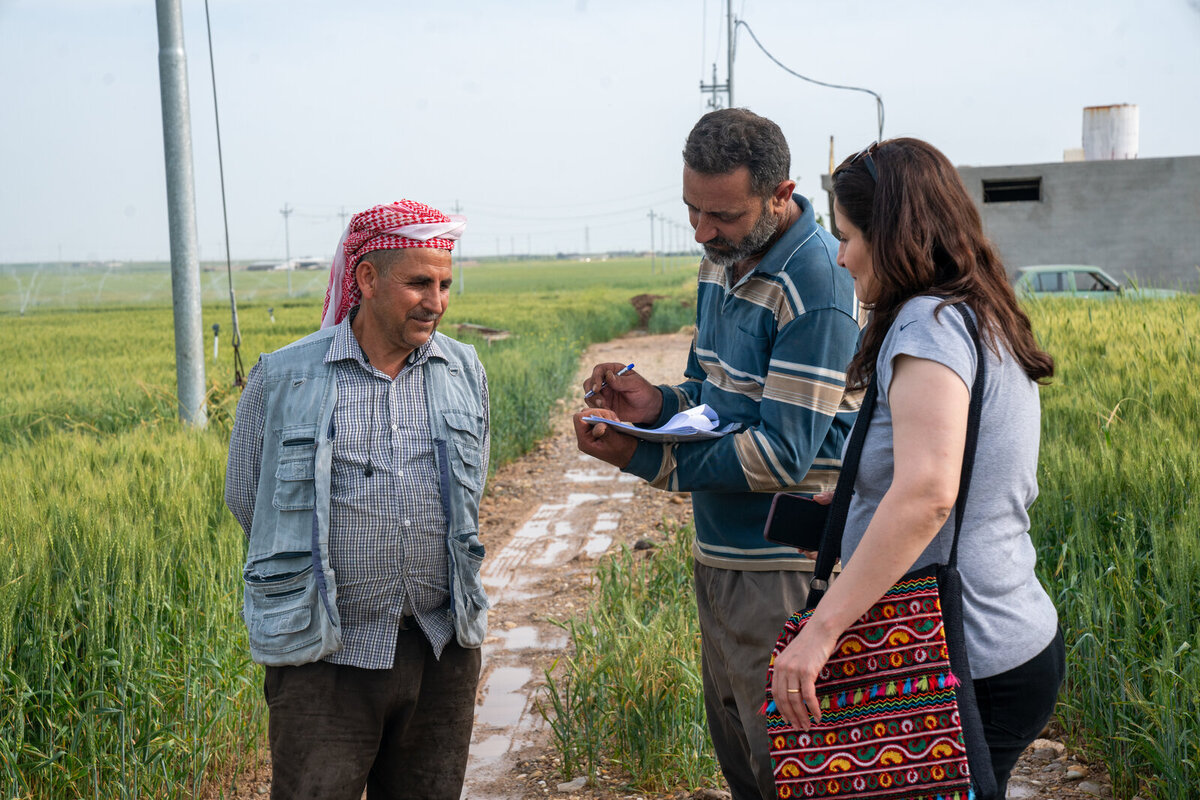The fertile Nineveh Plains in northern Iraq have long been the heart of agriculture. For generations, families here have worked the land and relied on what they could grow. But today, that’s no longer easy – rainfall is scarce, the climate is changing, and farmers are worried about the future. One of them is Wamedh, a farmer from the Christian town of Qaraqosh. Caritas Czech Republic helped him adapt to the changing climate.
Water instead of rain
“I’ve been a farmer since childhood – it’s my work, my expertise, and my future,” says Wamedh, who, like his ancestors, farms the land between Qaraqosh and Karamles, two of the main Christian centres in Iraq. Farming has been in his family for centuries. Today, he tends the fields together with his seven brothers, his father and his son.
They mainly grow wheat and barley, and corn in the summer. Even though the Nineveh Plains are among the most fertile in Iraq, the lack of rainfall poses a serious threat. “There isn’t enough rain. But thanks to the irrigation system I received from Caritas Czech Republic, I can manage. The water is distributed exactly where it’s needed,” Wamedh explains.
The irrigation system was not the only support he received. Wamedh also attended training on modern farming techniques and irrigation practices, which helped him adjust to new conditions. He learned about the support through local community and neighbourhood groups.
“I’m grateful for the help and for the tools I received. They mean a lot to me,” he adds.
Climate change is real
Wamedh is well aware that his fields are facing changes that didn’t exist a decade ago. “Over the last ten years, the weather has changed, and rainfall has decreased. Yields are lower than they used to be. Wheat production has dropped, and that scares me,” he says honestly. He fears the future – too much sun, not enough water, and uncertainty about what’s coming next.
That is why he places great importance on passing down his knowledge to his children. “I’m focused on my children’s future. I’m teaching them how to become farmers – passing on my experience and methods. That’s my plan,” he says.
A family legacy that lives on
Wamedh farms the same land his ancestors worked – land that, he says, has been cultivated for 200 years. He sells most of his harvest to the government, part to local suppliers, and keeps some for his family.
“This is a family business. We all work together – me, my brothers, my son, my father. We’re used to it. It’s always been that way,” he explains.
Thanks to the support from Caritas Czech Republic, Wamedh gained not only new tools and knowledge, but also a renewed hope that his family’s tradition will continue, despite the changing conditions.
Caritas Czech Republic in Iraq
Caritas Czech Republic supported small-scale farmers on the Nineveh Plains, who are facing the effects of climate change, water scarcity, and economic instability. We provided trainings in modern agricultural techniques, irrigation system restoration, tools and equipment, and long-term support so farmers can secure their livelihoods and become self-reliant.














